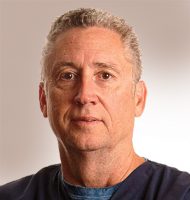World-class research
Years ago, Greg Murphy was at the American College of Cardiology’s national meeting listening to a presentation about clinical trials around the country. Murphy is director of research at Tyler CVC, which means that he leads a team that finds, enrolls and monitors patients willing to participate in trials of the most promising new drugs and devices to treat heart disease. One slide literally stopped the speaker giving the presentation. “The slide showed that we were the No. 1 enrolling site in the United States in one study,” recalls Murphy. “The speaker looked up and said, ‘Can someone tell me where in the heck Tyler, Texas, is?’”
Questions of that sort are rare these days, in large part because Tyler CVC has a 30-year track record of running sophisticated clinical trials. Implementing clinical trials of the sort typically found at large university hospitals is a rarity at individual cardiology practices. “It’s a huge undertaking to develop the systems needed to run these research projects and we are federally regulated. When the FDA (Food and Drug Administration) comes to audit us, they have badges,” says Murphy. “We have to follow the federal code of regulations and good clinical practices, and you have to do it perfectly or you don’t survive for 30-plus years in the research realm.”
 Even though the challenges of running clinical trials are significant, the upsides for heart patients in East Texas make it worth the effort. “When you have a drug or device that is under research, it’s not available to the world,” says Murphy. “The advantages of having a research infrastructure are that the public has the opportunity to have access to cutting-edge drugs and devices before other facilities and communities do.”
Even though the challenges of running clinical trials are significant, the upsides for heart patients in East Texas make it worth the effort. “When you have a drug or device that is under research, it’s not available to the world,” says Murphy. “The advantages of having a research infrastructure are that the public has the opportunity to have access to cutting-edge drugs and devices before other facilities and communities do.”
In the early years of Tyler CVC’s research activities, the focus was primarily on drugs that dissolved dangerous blood clots and managed blood pressure. More recently, attention has shifted to the development of increasingly sophisticated devices. For example, Tyler CVC recently participated in a global clinical trial of a cardiac resynchronization therapy (CRT) device that treats heart failure. The device, called AdaptResponse, was implanted in a patient suffering from heart disease with the aim of improving the pumping efficiency of their heart. To do that, the device is programmed to automatically adjust to heart failure patients’ needs, ensuring that blood moves through the heart efficiently enough to pump the oxygen and nutrients the body needs to function.
Tyler CVC also has been at the forefront of testing new pacemakers, implantable defibrillators and both stents and alternatives to stents designed to treat blocked heart vessels. In 2016, for instance, Tyler CVC’s Dr. Robert Smith implanted the first bioresorbable vascular stent in Texas. The device had been part of a clinical trial at Tyler CVC in 2013, before it received FDA approval. The device is similar to a traditional stent in the sense that it opens blocked blood vessels, but the difference is that it eventually dissolves in the body.
These and other medical advances to treat heart disease will continue to be developed with the help of Tyler CVC’s doctors, patients and staff. Importantly, these trials help improve care for heart patients everywhere. “To be able to see new technologies come down the line and to participate in bringing those into the public domain with our studies has been really exciting,” says Dr. Thaddeus Tolleson, who is the physician who oversees research initiatives at Tyler CVC.
